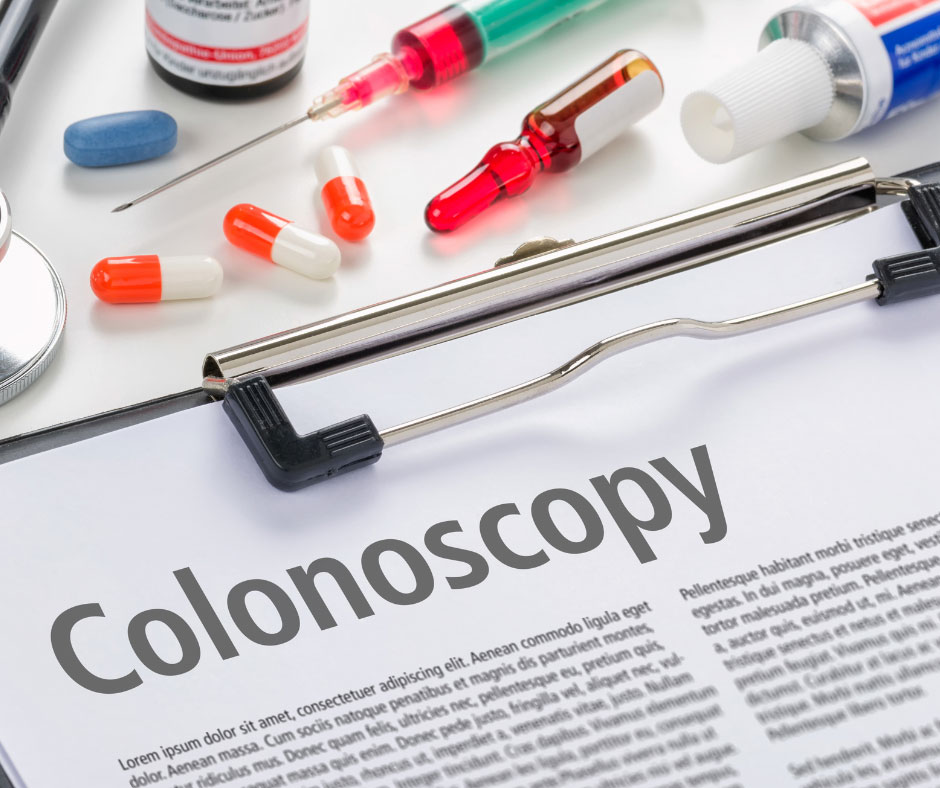
MARCH IS NATIONAL COLORECTAL CANCER MONTH, AN IDEAL TIME FOR A CHECK-UP TO ENSURE YOU ARE GIVING YOUR BODY WHAT IT NEEDS TO WARD OFF THE THIRD MOST PREVALENT CANCER IN MEN AND WOMEN.

Colorectal cancer begins in polyp form which can grow into a cancerous mass. A colonoscopy screening, still the Gold Standard for prevention, offers a twofold benefit—it screens for potential problems (polyps) and can also remove them during the same brief procedure. When discovered in early stages, up to 85 percent of all colorectal cancers can usually be successfully treated.
The American Cancer Society recommends these colorectal screenings for older people:
- Up to age 75: Regular annual screenings – colonoscopy every 5-10 years
- Ages 76 – 85: Talk with your health care provider based on medical history
- Over age 85: Discontinue screenings
THE SNEAKY SIDE OF COLON CANCER
Keep in mind, colon and rectal polyps rarely cause pain or other physical symptoms in the early stages, so regular screening is essential for prompt diagnosis and treatment. Common symptoms of cancerous colon and rectal polyps may include:
- Bowel habit changes
- Rectal bleeding or blood in the stool
- Chronic weakness or fatigue
- Weight loss
- Frequent stomach discomfort or gas
NUTRITION DEFENSE

Today more than ever, what you eat can preserve your health or open the door to disease, especially as you age. Diet affects risk for most diseases, including cancer. Research studies found that eating plentiful amounts of fiber-rich whole fruits, vegetables and whole grains can help to decrease risk. Skip or significantly reduce red meats and processed foods, including deli meats, bacon and hot dogs.
SMOKING CESSATION
Today’s seniors come from an era when smoking wasn’t a trend, it was a necessity. There are still many smokers today who have a myriad of tools available to help kick the habit or greatly minimize use. Tobacco use has long been known to significantly boost cancer risk.
EXERCISE CAN REDUCE CANCER RISK BY UP TO 40%

Studies show people who regularly exercise are 30 to 40 percent less likely to develop colorectal cancer. Further, three specific types of cancer linked to a sedentary lifestyle are breast, endometrial and colon cancers.
HEAVY ALCOHOL CONSUMPTION
People who consume a moderate (two drinks) to heavy amount (three drinks or more) of alcohol, including wine, are more likely to develop colorectal cancers than those who don’t drink. In fact, imbibing is linked to increased risk for several types of cancer.
Visit the American Cancer Society to learn more about colorectal cancer prevention, diagnosis and treatment. If you’re interested in more information about continuing care senior living (CCRC) and Applewood’s Engaged Living™ lifestyle, download our Senior Living Guide.



